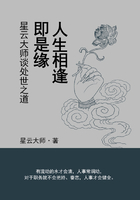Father and Son
M. Noirtier—for it was, indeed, he who entered—looked after the servant until the door was closed, and then, fearing, no doubt, that he might be overheard in the ante-chamber, he opened the door again, nor was the precaution useless, as appeared from the rapid retreat of Germain, who proved that he was not exempt from the sin which ruined our first parents. M. Noirtier then took the trouble to close and bolt the ante-chamber door, then that of the bed-chamber, and then extended his hand to Villefort, who had followed all his motions with surprise which he could not conceal.
"Well, now, my dear Gerard," said he to the young man, with a very significant look, "do you know, you seem as if you were not very glad to see me?"
"My dear father," said Villefort, "I am, on the contrary, delighted; but I so little expected your visit, that it has somewhat overcome me."
"But, my dear fellow," replied M. Noirtier, seating himself, "I might say the same thing to you, when you announce to me your wedding for the 28th of February, and on the 3rd of March you turn up here in Paris."
"And if I have come, my dear father," said Gerard, drawing closer to M. Noirtier, "do not complain, for it is for you that I came, and my journey will be your salvation."
"Ah, indeed!" said M. Noirtier, stretching himself out at his ease in the chair. "Really, pray tell me all about it, for it must be interesting."
"Father, you have heard speak of a certain Bonapartist club in the Rue Saint-Jacques?"
"No. 53; yes, I am vice-president."
"Father, your coolness makes me shudder."
"Why, my dear boy, when a man has been proscribed by the mountaineers, has escaped from Paris in a hay-cart, been hunted over the plains of Bordeaux by Robespierre's bloodhounds, he becomes accustomed to most things. But go on, what about the club in the Rue Saint-Jacques?"
"Why, they induced General Quesnel to go there, and General Quesnel, who quitted his own house at nine o'clock in the evening, was found the next day in the Seine."
"And who told you this fine story?"
"The king himself."
"Well, then, in return for your story," continued Noirtier, "I will tell you another."
"My dear father, I think I already know what you are about to tell me."
"Ah, you have heard of the landing of the emperor?"
"Not so loud, father, I entreat of you—for your own sake as well as mine. Yes, I heard this news, and knew it even before you could; for three days ago I posted from Marseilles to Paris with all possible speed, half-desperate at the enforced delay."
"Three days ago? You are crazy. Why, three days ago the emperor had not landed."
"No matter, I was aware of his intention."
"How did you know about it?"
"By a letter addressed to you from the Island of Elba."
"To me?"
"To you; and which I discovered in the pocket-book of the messenger. Had that letter fallen into the hands of another, you, my dear father, would probably ere this have been shot." Villefort's father laughed.
"Come, come," said he, "will the Restoration adopt imperial methods so promptly? Shot, my dear boy? What an idea! Where is the letter you speak of? I know you too well to suppose you would allow such a thing to pass you."
"I burnt it, for fear that even a fragment should remain; for that letter must have led to your condemnation."
"And the destruction of your future prospects," replied Noirtier; "yes, I can easily comprehend that. But I have nothing to fear while I have you to protect me."
"I do better than that, sir—I save you."
"You do? Why, really, the thing becomes more and more dramatic—explain yourself."
"I must refer again to the club in the Rue Saint-Jacques."
"It appears that this club is rather a bore to the police. Why didn't they search more vigilantly? they would have found"—
"They have not found; but they are on the track."
"Yes, that the usual phrase; I am quite familiar with it. When the police is at fault, it declares that it is on the track; and the government patiently awaits the day when it comes to say, with a sneaking air, that the track is lost."
"Yes, but they have found a corpse; the general has been killed, and in all countries they call that a murder."
"A murder do you call it? why, there is nothing to prove that the general was murdered. People are found every day in the Seine, having thrown themselves in, or having been drowned from not knowing how to swim."
"Father, you know very well that the general was not a man to drown himself in despair, and people do not bathe in the Seine in the month of January. No, no, do not be deceived; this was murder in every sense of the word."
"And who thus designated it?"
"The king himself."
"The king! I thought he was philosopher enough to allow that there was no murder in politics. In politics, my dear fellow, you know, as well as I do, there are no men, but ideas—no feelings, but interests; in politics we do not kill a man, we only remove an obstacle, that is all. Would you like to know how matters have progressed? Well, I will tell you. It was thought reliance might be placed in General Quesnel; he was recommended to us from the Island of Elba; one of us went to him, and invited him to the Rue Saint-Jacques, where he would find some friends. He came there, and the plan was unfolded to him for leaving Elba, the projected landing, etc. When he had heard and comprehended all to the fullest extent, he replied that he was a royalist. Then all looked at each other,—he was made to take an oath, and did so, but with such an ill grace that it was really tempting Providence to swear him, and yet, in spite of that, the general was allowed to depart free—perfectly free. Yet he did not return home. What could that mean? why, my dear fellow, that on leaving us he lost his way, that's all. A murder? really, Villefort, you surprise me. You, a deputy procureur, to found an accusation on such bad premises! Did I ever say to you, when you were fulfilling your character as a royalist, and cut off the head of one of my party,‘My son, you have committed a murder?' No, I said,‘Very well, sir, you have gained the victory; tomorrow, perchance, it will be our turn.'"
"But, father, take care; when our turn comes, our revenge will be sweeping."
"I do not understand you."
"You rely on the usurper's return?"
"We do."
"You are mistaken; he will not advance two leagues into the interior of France without being followed, tracked, and caught like a wild beast."
"My dear fellow, the emperor is at this moment on the way to Grenoble; on the 10th or 12th he will be at Lyons, and on the 20th or 25th at Paris."
"The people will rise."
"Yes, to go and meet him."
"He has but a handful of men with him, and armies will be despatched against him."
"Yes, to escort him into the capital. Really, my dear Gerard, you are but a child; you think yourself well informed because the telegraph has told you, three days after the landing,‘The usurper has landed at Cannes with several men. He is pursued.' But where is he? what is he doing? You do not know at all, and in this way they will chase him to Paris, without drawing a trigger."
"Grenoble and Lyons are faithful cities, and will oppose to him an impassable barrier."
"Grenoble will open her gates to him with enthusiasm—all Lyons will hasten to welcome him. Believe me, we are as well informed as you, and our police are as good as your own. Would you like a proof of it? well, you wished to conceal your journey from me, and yet I knew of your arrival half an hour after you had passed the barrier. You gave your direction to no one but your postilion, yet I have your address, and in proof I am here the very instant you are going to sit at table. Ring, then, if you please, for a second knife, fork, and plate, and we will dine together."
"Indeed!" replied Villefort, looking at his father with astonishment, "you really do seem very well informed."
"Eh? the thing is simple enough. You who are in power have only the means that money produces—we who are in expectation, have those which devotion prompts."
"Devotion!" said Villefort, with a sneer.
"Yes, devotion; for that is, I believe, the phrase for hopeful ambition."
And Villefort's father extended his hand to the bell-rope, to summon the servant whom his son had not called. Villefort caught his arm.
"Wait, my dear father," said the young man, "one word more."
"Say on."
"However stupid the royalist police may be, they do know one terrible thing."
"What is that?"
"The description of the man who, on the morning of the day when General Quesnel disappeared, presented himself at his house."
"Oh, the admirable police have found that out, have they? And what may be that description?"
"Dark complexion; hair, eyebrows, and whiskers, black; blue frock-coat, buttoned up to the chin; rosette of an officer of the Legion of Honor in his button-hole; a hat with wide brim, and a cane."
"Ah, ha, that's it, is it?" said Noirtier; "and why, then, have they not laid hands on him?"
"Because yesterday, or the day before, they lost sight of him at the corner of the Rue Coq-Heron."
"Didn't I say that your police were good for nothing?"
"Yes; but they may catch him yet."
"True," said Noirtier, looking carelessly around him, "true, if this person were not on his guard, as he is;" and he added with a smile, "He will consequently make a few changes in his personal appearance." At these words he rose, and put off his frock-coat and cravat, went towards a table on which lay his son's toilet articles, lathered his face, took a razor, and, with a firm hand, cut off the compromising whiskers. Villefort watched him with alarm not devoid of admiration.
His whiskers cut off, Noirtier gave another turn to his hair; took, instead of his black cravat, a colored neckerchief which lay at the top of an open portmanteau; put on, in lieu of his blue and high-buttoned frock-coat, a coat of Villefort's of dark brown, and cut away in front; tried on before the glass a narrow-brimmed hat of his son's, which appeared to fit him perfectly, and, leaving his cane in the corner where he had deposited it, he took up a small bamboo switch, cut the air with it once or twice, and walked about with that easy swagger which was one of his principal characteristics.
"Well," he said, turning towards his wondering son, when this disguise was completed, "well, do you think your police will recognize me now."
"No, father," stammered Villefort; "at least, I hope not."
"And now, my dear boy," continued Noirtier, "I rely on your prudence to remove all the things which I leave in your care."
"Oh, rely on me," said Villefort.
"Yes, yes; and now I believe you are right, and that you have really saved my life; be assured I will return the favor hereafter." Villefort shook his head.
"You are not convinced yet?"
"I hope at least, that you may be mistaken."
"Shall you see the king again?"
"Perhaps."
"Would you pass in his eyes for a prophet?"
"Prophets of evil are not in favor at the court, father."
"True, but some day they do them justice; and supposing a second restoration, you would then pass for a great man."
"Well, what should I say to the king?"
"Say this to him:‘Sire, you are deceived as to the feeling in France, as to the opinions of the towns, and the prejudices of the army; he whom in Paris you call the Corsican ogre, who at Nevers is styled the usurper, is already saluted as Bonaparte at Lyons, and emperor at Grenoble. You think he is tracked, pursued, captured; he is advancing as rapidly as his own eagles. The soldiers you believe to be dying with hunger, worn out with fatigue, ready to desert, gather like atoms of snow about the rolling ball as it hastens onward. Sire, go, leave France to its real master, to him who acquired it, not by purchase, but by right of conquest; go, sire, not that you incur any risk, for your adversary is powerful enough to show you mercy, but because it would be humiliating for a grandson of Saint Louis to owe his life to the man of Arcola, Marengo, Austerlitz.' Tell him this, Gerard; or, rather, tell him nothing. Keep your journey a secret; do not boast of what you have come to Paris to do, or have done; return with all speed; enter Marseilles at night, and your house by the back-door, and there remain, quiet, submissive, secret, and, above all, inoffensive; for this time, I swear to you, we shall act like powerful men who know their enemies. Go, my son—go, my dear Gerard, and by your obedience to my paternal orders, or, if you prefer it, friendly counsels, we will keep you in your place. This will be," added Noirtier, with a smile, "one means by which you may a second time save me, if the political balance should some day take another turn, and cast you aloft while hurling me down. Adieu, my dear Gerard, and at your next journey alight at my door." Noirtier left the room when he had finished, with the same calmness that had characterized him during the whole of this remarkable and trying conversation. Villefort, pale and agitated, ran to the window, put aside the curtain, and saw him pass, cool and collected, by two or three ill-looking men at the corner of the street, who were there, perhaps, to arrest a man with black whiskers, and a blue frock-coat, and hat with broad brim.
Villefort stood watching, breathless, until his father had disappeared at the Rue Bussy. Then he turned to the various articles he had left behind him, put the black cravat and blue frock-coat at the bottom of the portmanteau, threw the hat into a dark closet, broke the cane into small bits and flung it in the fire, put on his travelling-cap, and calling his valet, checked with a look the thousand questions he was ready to ask, paid his bill, sprang into his carriage, which was ready, learned at Lyons that Bonaparte had entered Grenoble, and in the midst of the tumult which prevailed along the road, at length reached Marseilles, a prey to all the hopes and fears which enter into the heart of man with ambition and its first successes.














